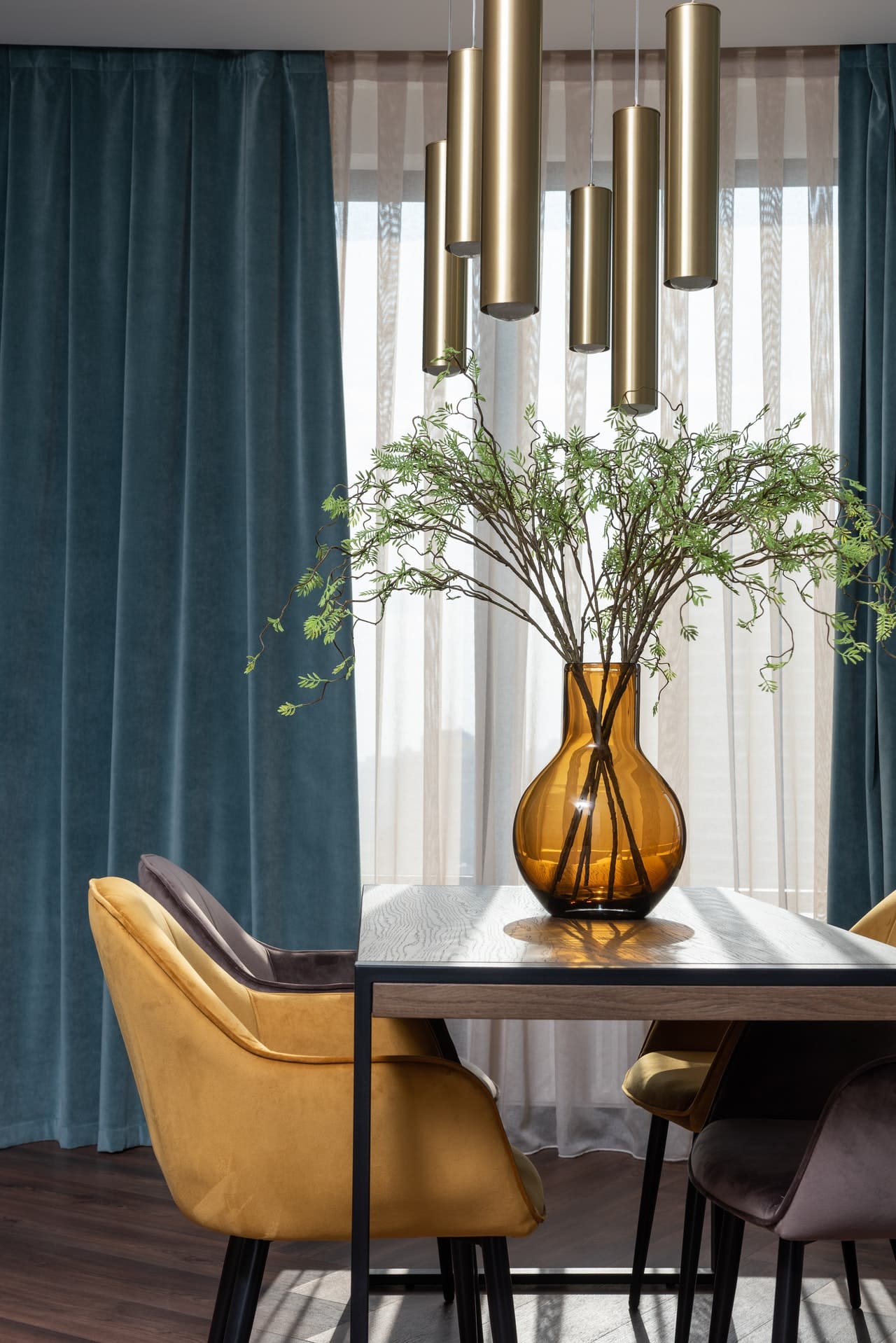Best Air Purifier for Guinea Pigs – Several microbial particles in your home can adversely affect you, especially if you are prone to respiratory diseases. House pets such as Guinea Pigs regularly shed particles which can be problematic when inhaled. However, with an air purifier installed, you do not have to worry about allergic reactions.
Do air purifiers work for guinea pigs?
Yes. While Guinea pigs produce allergens that stay in the air for a prolonged period, an air purifier sucks up all the harmful particles leaving you with clean air to breathe. The health risk posed by keeping pets in the house can be easily solved by using an air purifier.
The good thing about these devices is that they are safe for humans and animals. This article digs deep into air purifiers, how they work, what to consider when buying, and their benefits, and answers some of your frequently asked questions. Stay with us.
Read also: Can I Put an Air Purifier Against a Wall?
Do Air Purifiers Work for Guinea Pigs?
Besides their dander, guinea pigs tend to roam outside and carry other allergens, such as pollen and dust, into the house. This further increases your chances of catching an allergic reaction. Even though some of these particles may not immediately affect you when inhaled, long-term exposure could lead to severe health problems.
An indoor air purifier works in two ways. Firstly, it helps in sucking all the harmful particles such as dust, dander, and pollen that can upset and trigger allergic reactions in some people. Secondly, an air purifier eliminates the unpleasant smell that’s inevitable with keeping home pets.
How Air Purifiers Work
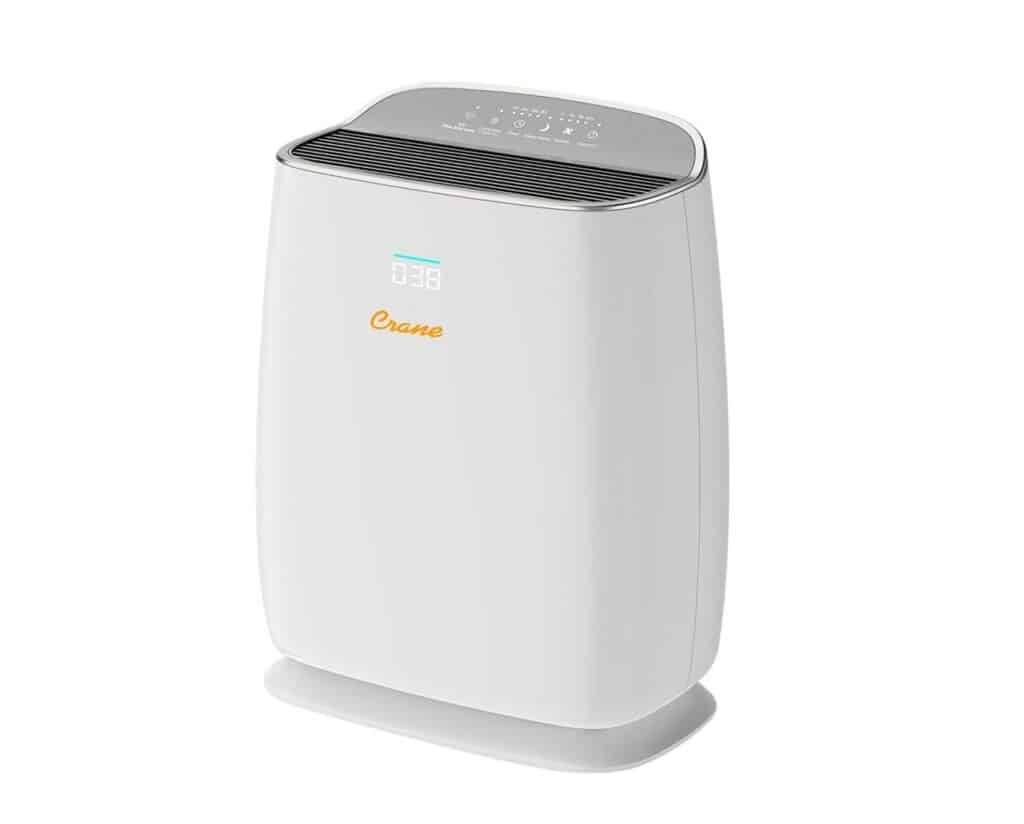
Air purifiers have a couple of filters and a fan. The fan sucks in the air; this air goes through the filters. The filters trap and absorb dust, dander, bacteria, and other pollutants and release fresh air into the room. This purifying process promotes the circulation of clean and healthy air indoors.
Benefits of Using Air Purifiers
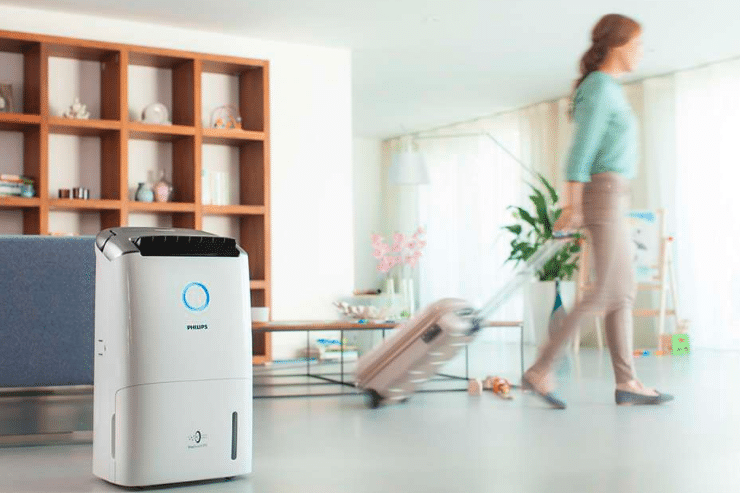
Most indoor air purifiers, such as air purifier for guinea pigs, have HEPA filters meant to trap all air pollutants leaving you with clean air. Some have replaceable filters for absorbing larger particles. Below are some benefits of using an air purifier in a pet home:
- Clears unpleasant odors – Sometimes, pets can produce unpleasant odors from their urine or poop. However, an air purifier helps clear out such smells and return to normal fresh air.
- Removes harmful allergens from the air – Keeping pets in the house means dealing with harmful dander and other daily pollutants. Air purifiers suck these pollutants from the air, making it clean and fresh to breathe.
- Prevents airborne diseases – Airborne diseases easily spread through pathogens floating in the air. Some of these pathogens come from the pets we keep. An air purifier containing HEPA filters traps these bacteria and viruses, thus preventing the risk of airborne diseases.
- Relieves asthma symptoms – Pets such as guinea pigs, cats, and dogs shed dander throughout the year. This dander stays in the air for an extended period, causing pollution. For an asthmatic person, this increases the symptoms. An air purifier cleans the air making it conducive for everyone.
Factors to Consider to Choose the Best Air Purifiers for Guinea Pigs
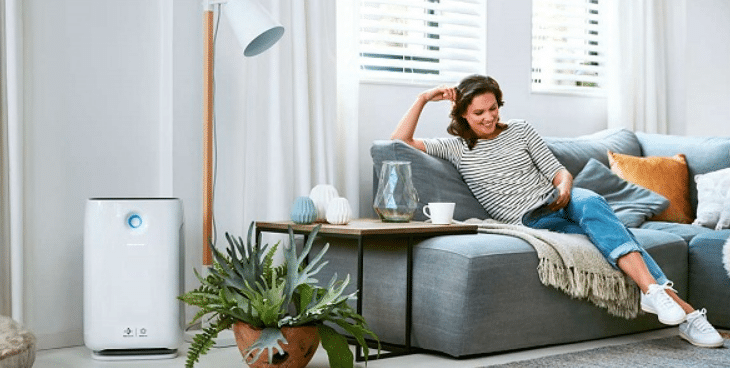
Before spending your money on an air purifier, there are crucial factors you need to consider to experience all-out benefits and avoid some adverse health effects from your air purifier. Here are some factors to consider before choosing the Best Air Purifier for Guinea Pigs:
- HEPA Filters – For the best air cleaning, use purifiers containing HEPA and activated carbon filters. They are effective in eliminating bad odors.
- Noise Level – Loud noise can be irritating and disruptive. Opt for a low-noise air purifier to avoid conversation and sleep disruption.
- ACH Rating – Air Change per Hour refers to the number of times the air in an entire room gets filtered in an hour. The higher the number, the more efficient the air purifier is. The recommended ACH rating is 4x or 5x.
- Size – Pick an air purifier that will fit in your room without occupying too much space. To save on energy, buy a medium-size air purifier that is effective for slightly bigger rooms.
- Clean Air Delivery Rate – CADR refers to the overall speed at which the air purifier takes to filter the air in a given room. A higher clean air delivery rate means the air purifier is effective and works faster.
- Maintenance – Generally, air purifiers cost about $150; others could be slightly cheaper or more expensive depending on the size and type of filters. Maintenance cost depends on the same too. Some purifiers have washable filters and require more power, which means a high electricity bill.
- Ozone Emission – It’s important to note that some air purifiers produce high levels of ozone gas. This gas is hazardous and can damage your respiratory system. Avoid such air purifiers.
Best Air Purifier for Guinea Pigs
When choosing an air purifier for guinea pigs, there are a few factors to consider. Guinea pigs produce a lot of dust and dander, so you’ll want to choose an air purifier that effectively filters these particles. You’ll also want to consider the size of the room where the guinea pigs are kept and any other factors that may affect air quality (such as smoking or the presence of other pets).
Based on these considerations, here are a few options for air purifiers that may work well for guinea pigs:
Winix 5500-2 Air Purifier
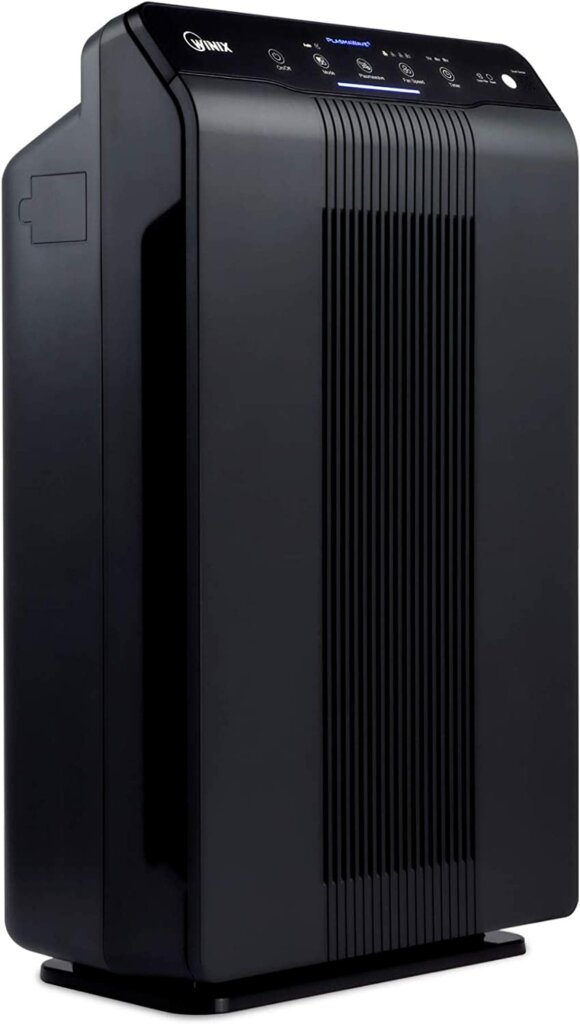
Key features of Winix 5500-2 Air Purifier
- True HEPA filter captures 99.97% of airborne pollutants; dust mites, pet dander, pollen, and other allergens as small as 0.3 microns.
- Washable AOC Carbon Filter, made from activated carbon granulars to remove household odors. Decibels 27.8 dB
- PlasmaWave acts as a permanent filter to safely break down odor, allergens, chemical vapors, and other pollutants with no harmful ozone
- Smart Sensors gauge the air, and our Auto Mode adjusts the fan to filter the air as needed, with a sleep mode for silent nighttime operation.
- CADR rated for 360 square feet room size. Suitable for medium and large rooms, kid’s bedrooms, family rooms, and kitchens
- Price: $249.99
Coway AP-1512HH Mighty Air Purifier
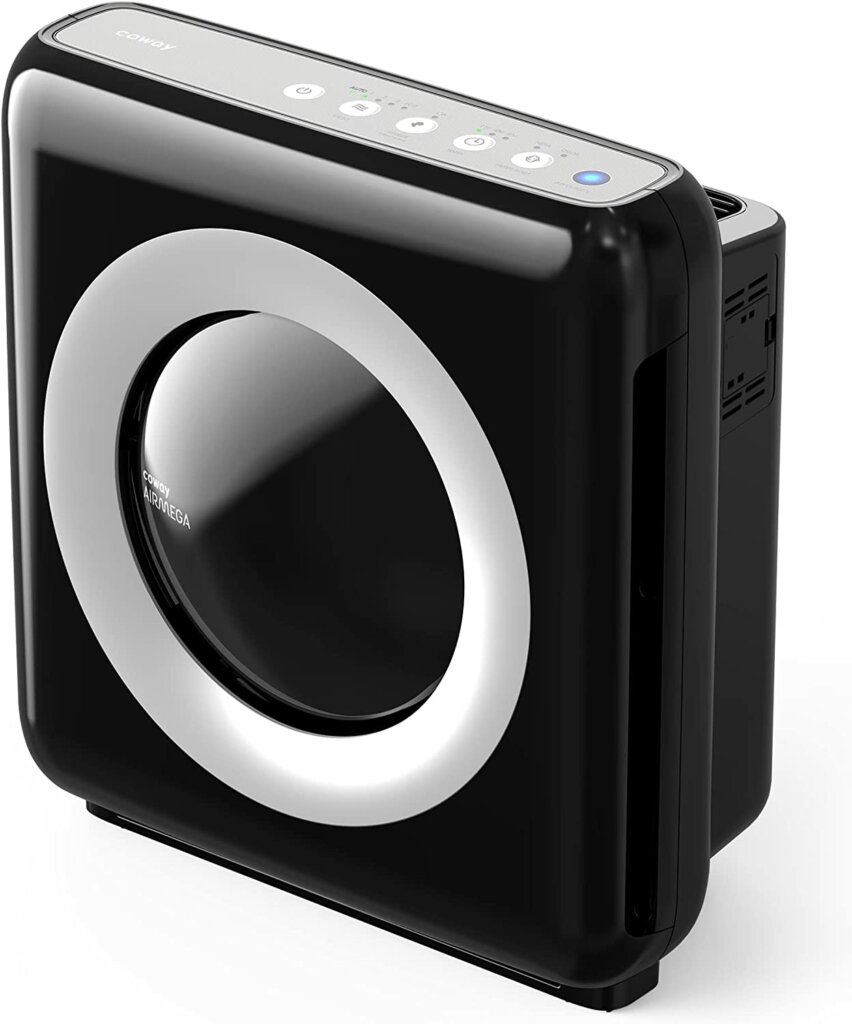
Key features of Coway AP-1512HH Mighty Air Purifier:
- [Coverage] Designed to clean spaces up to 361 sq. ft. in 12.5 minutes or up to 874 sq. ft. in 30 minutes. Timer: 1, 4, 8 hours
- [HyperCaptive Filtration System] Combination of a pre-filter, deodorization filter, and True HEPA Filter reduces 99.999% of 0.01-micron particles, including pollen and other allergens. It also reduces 99% of volatile organic compounds and odor.
- [Auto Mode] Constantly monitoring the air quality, the fan automatically adjusts to most effectively purify your space as needed providing a new level of cleaning in real-time.
- [Eco Mdoe] When the air quality in the room remains purified for 30 minutes or more in Eco Mode, the fan will turn off to conserve energy, kicking on again when pollution is detected.
- [3-Stage Manual Fan Speed] manually Control your AP-1512HH’s fan with low, medium, and high settings.
- [Air Quality Indicator] Pollution sensor communicates indoor air quality in real time. Brightly colored LED lets you know how clean or dirty your indoor air is every minute of the day. You can turn off the light to sleep.
- [Filter Alerts] The air filter indicator tells you when the filters need to be replaced, and the pre-filter needs to be cleaned for maximum efficiency based on how much air they have processed.
- [Ultra Quiet] Ultra quiet operation with noise levels ranging from 24 dB to 53 dB.
- [Timer] Schedule the unit to purify 1, 4, or 8 hours of use and conserve energy.
- Price: $229.99
Honeywell HPA300 Air Purifier
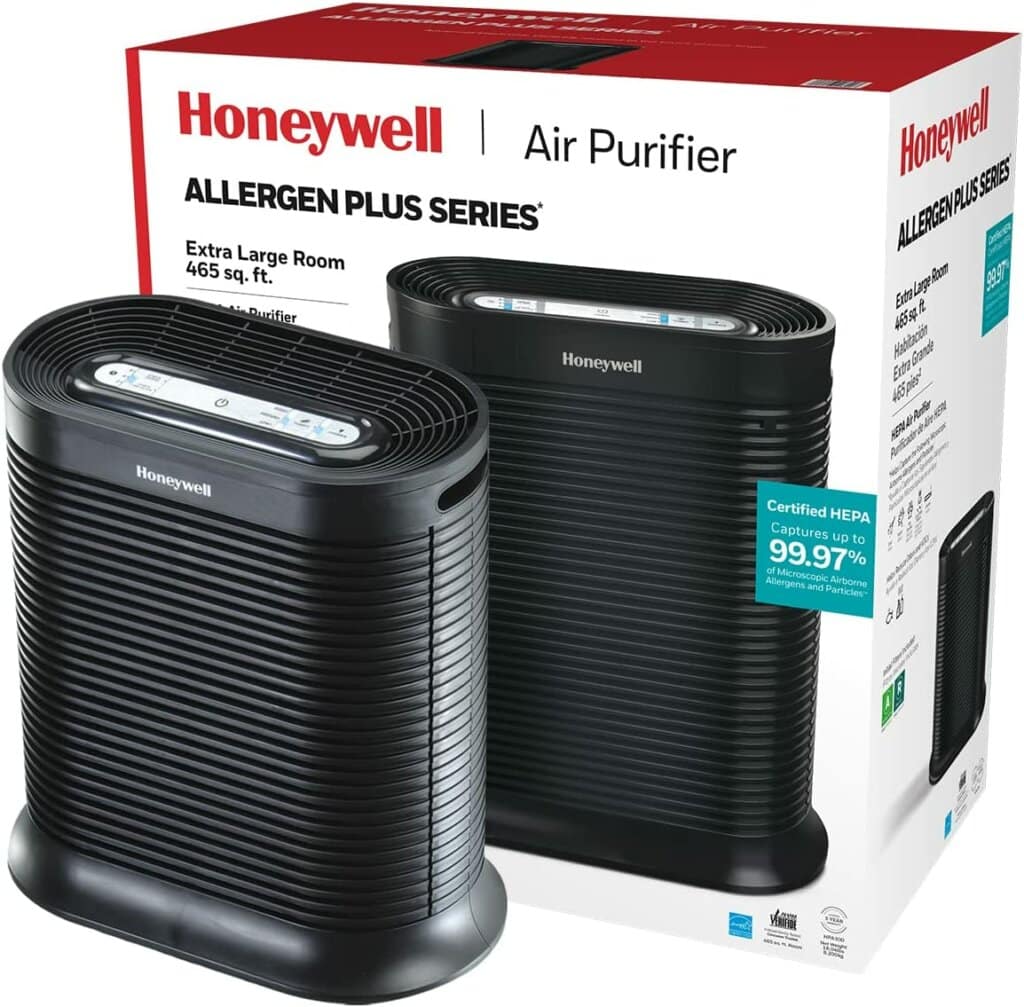
Key features of Honeywell HPA300 Air Purifier:
- EXTRA LARGE ROOM AIR PURIFIER – Honeywell HPA300 HEPA Air Purifier helps provide fresher, cleaner air in minutes. Cleans up to 2250 sq ft in 60 mins (1 ACH) for powerful large room coverage. Provides 4.8 air exchanges per hr in AHAM suggested room size of 465 sq ft.
- HELPS REDUCE ALLERGENS – This HEPA air purifier has three air cleaning levels, including Turbo Clean. It helps capture microscopic airborne allergens and particles: dust, pollen, pet dander, dust mite debris, and smoke.
- EFFECTIVE AIR CLEANING AND CIRCULATION – The Honeywell HPA304 Air Purifier filters and circulates air in extra-large 465 square feet rooms up to 4.8 times an hour.
- ALLERGEN PLUS SERIES – This Honeywell HEPA Air Purifier is part of our Allergen Plus series. This product earned the ENERGY STAR label by meeting strict energy-efficient guidelines set by the U.S. EPA.
- COMPATIBLE DOES NOT MEAN COMPARABLE – Use only Genuine Honeywell air purifier filters for best performance. Compatible air purifier filter replacements are not guaranteed to offer the same performance or efficiency.
- IDEAL FOR WILDFIRE SEASON: Wildfire smoke can impact the air quality where you live, even if you don’t live near the fires. Because smoke contains extremely small particles, air purifiers can help remove some of these particles¹ from your air.
- Price: $269.99
Frequently Asked Questions
Here are some frequently asked questions concerning air purifiers:
● How Long Does an Air Purifier Take to Clean a Room?
Cleaning duration usually depends on how big the room is. Most air purifiers take approximately 30 minutes to 2 hours. Air Change per Hour (ACH) rating is also a determinant. It refers to the number of times an entire room gets filtered per hour. An efficient purifier filters about five times per hour.
● Do Air Purifiers Assist Guinea Pigs?
Yes. Guinea pigs have a delicate respiratory system. To prevent them from contracting upper respiratory infections (URI), it’s essential to clean the air using an air purifier.
● Are Air Purifiers Safe?
Not all air purifiers are safe. Some emit harmful ozone. It causes chest pains, shortness of breath, and coughing. Prolonged exposure to a high ozone level is detrimental to your respiratory system. However, air purifiers that contain activated carbon filters and HEPA are safe for human use.
Final Word
Pet keepers’ demand for air purifiers has significantly increased due to insufficient ventilation in most houses. While keeping pets such as guinea pigs, cats, and dogs has always been fascinating, the pets’ odor, dander, and hair can pollute the air and cause respiratory problems. The smell of your guinea pig’s urine can cause discomfort in your living room. However, a good air purifier can effortlessly return fresh and clean air to your living room.
We hope you found this article informative. If you are contemplating purchasing an air purifier for your little guinea pig, buy with confidence because they effectively work. – Best Air Purifier for Guinea Pigs

